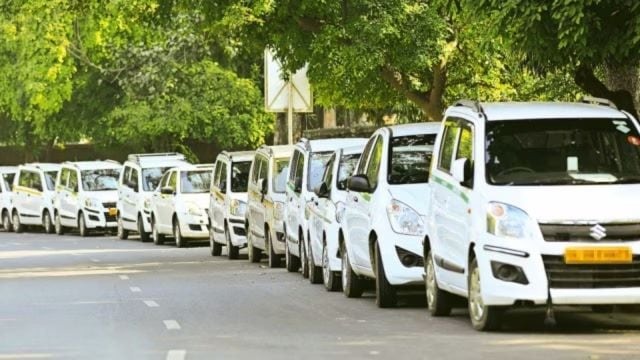
MARGAO
The Goa Transport Aggregator Guidelines 2025, aimed at regulating app-based taxi services, has thrown up a host of socio-economic issues along the Salcete coastal belt – the home to a host of starred hotels, from Majorda and Utorda, extending right up to Colva, Benaulim, Varca and Cavelossim, the hub of starred resorts.
Locked in a battle with the tour and coach operators over the years to have a slice of the tourism cake, local tourist taxi operators are perhaps facing the greatest challenge to what they say is not just running a taxi business, but their very livelihood, identity, culture and above all the basic question doing the rounds along the beach belt – for whom is tourism meant if sons of the soil do not benefit from the self-employed taxi business outside the hotels?
'Sons of the soil' on the edge
One would come across tourist taxi stands at almost every resort and hotel with a fleet of vehicles, including high-end cars, run and operated by sons of the soil, a taxi business which has helped them to earn a livelihood, raise families and contribute to the local economy.
Indeed, fear and anxiety rent the air at every tourist taxi stand, with the taxi operators keeping their fingers crossed as to what lies in store for them if the government tries to bulldoze its way with the notification. Says Varca-based tourist taxi operator, Jose Afonso: “The government is looking at the taxi issue purely from a business perspective – how much operators would earn, how the guests will benefit from app-based taxis et al. The government has absolutely no socio-economic study on how the app-based taxis will displace the sons of the soil from the trade, resulting in unemployment, migration, etc.”
He added: “If the Salcete coastal belt today has dozens of starred hotels and resorts, it’s purely because of the support extended by the local populace in return for employment and self-employed avenues such as running taxis. Now suddenly, the very existence of these taxi operators is under threat. How are we to survive if the app-based taxis pick up guests from the hotels right before our eyes? Many a time we have to go without business for days together.”
A former Sarpanch of Varca Panchayat, Jose recalled how the local body had helped a hotel to take shape in the village in the interest of the local youth. “Most of the hotels have come up along the beach belt with the support and goodwill of locals. Suddenly, these app-based taxis are trying to encroach on our home turf by picking up customers from the hotels. Our demand is to exempt the taxi stands at the hotels from app-based taxis. We ply taxis as per the government fares displayed at the hotels. The rates are also vetted by the hotels.”
Livelihood concerns
A Benaulim-based tourist taxi operator, Roque Fernandes, echoed similar sentiments. “How will the local taxi operators survive and earn a living if app-based taxis drop and also pick up guests from the hotels? Just find out from any of the police stations whether there’s any criminal case pending against the local operators. We have provided the best service to our customers over the years. When a local hotel was conferred an award as one of the five best hotels in the country, they invited the taxi operators and their families for lunch. Why? Because the hotel management too felt that taxi operators were part of their success journey,” he recalled.
Both Roque and Jose pointed out that local tourist operators have invested in high-end vehicles at the instance of the hotel management to provide better service to the guests. “How are we to pay the bank instalments if the app-based taxis pick up guests from the hotels and leave us without business?” they questioned.
They added: “Just imagine a situation when the local taxi operators do not get guests nor are in a position to pay the vehicle loans. Who will run a business under such adverse circumstances? This may result in the migration of the locals in search of greener pastures. The government should treat the issue as a socio-economic one and not from the business perspective.”